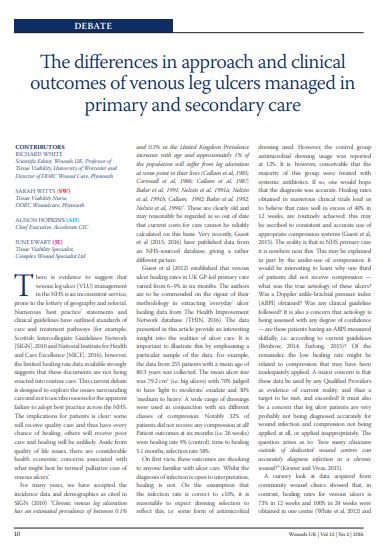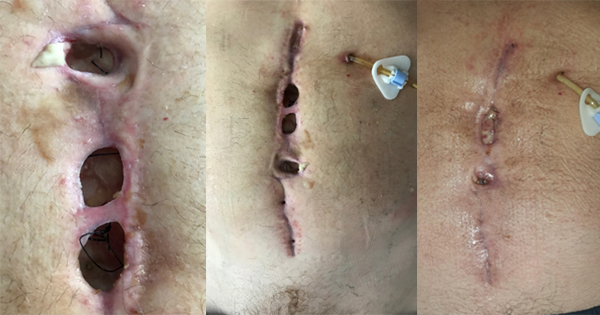There is evidence to suggest that venous leg ulcer (VLU) management in the NHS is an inconsistent service, prone to the lottery of geography and referral. Numerous best practice statements and clinical guidelines have outlined standards of care and treatment pathways (for example, Scottish Intercollegiate Guidelines Network [SIGN], 2010 and National Institute for Health and Care Excellence [NICE], 2016), however, the limited healing rate data available strongly suggests that these documents are not being enacted into routine care. This current debate is designed to explore the issues surrounding care and not to ascribe reasons for the apparent failure to adopt best practice across the NHS. The implications for patients is clear: some will receive quality care and thus have every chance of healing, others will receive poor care and healing will be unlikely. Aside from quality of life issues, there are considerable health economic concerns associated with what might best be termed palliative care of venous ulcers.







